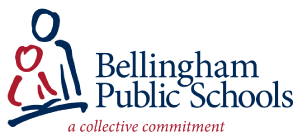Multilingual Learners
Multilingual learners are students who have consistent experience with multiple languages. These students may have a current proficiency level in English that qualifies them for additional language support through the����(TBIP), which in Bellingham Public Schools we refer to as the Multilingual Learner Program (ML Program.) The goal of this program is to assist students in developing their English language proficiency and grade-level content knowledge.
Mission Statement:��Bellingham’s multilingual learner (ML) program is dedicated to building capacity at the district, school, and classroom level to ensure that students develop English language proficiency and content knowledge in an environment where linguistic and cultural assets are recognized as valuable resources for learning.
Our model for Multilingual Learner program services is Supportive Mainstream:

Students in this model access grade-level academic content and English language development (ELD) through participation in their general education (mainstream) classrooms.
- Designated English language development: Explicit English language instruction is delivered either individually or in small groups by teachers who have been specifically trained in the field of second language acquisition and instructional strategies for language learners such as SIOP or GLAD. This instruction does not replace grade level content, and students spend the majority of their school day in general education classrooms with their peers.
- Meaningful access to rigorous, grade-level content: In this model, English language instruction is delivered throughout the day to ensure access to core content in English. The district provides (1) ongoing professional development for classroom teachers who are responsible for providing access to grade-level curriculum for the multilingual learners in their classrooms as well as (2) collaboration with Multilingual Specialists for planning, teaching, and assessment.
Frequently Asked Questions
How do students qualify for the ML Program?
All families who register students with schools in Washington State are asked to fill out a�� that identifies their primary language.�� When a student has a language other than English as their first language, they are given the state-approved English language proficiency test (WIDA screener) within ten days of their enrollment to determine whether they qualify for the program.
How does the district measure multilingual learners’ progress in English language acquisition?
Multilingual learners’ language skills in reading, writing, listening and speaking are assessed annually each February using the WIDA ACCESS or WIDA Alternate ACCESS assessment. These test results help educators determine both individual student strengths and needs as well as schoolwide and district level trends. Language progress is also assessed throughout the school year using regular formative assessments.
How long do students receive ML program services?
Students “exit” ML program services once they demonstrate that they are proficient in English by earning a specific overall score on the annual WIDA assessment. A minimum overall WIDA score of 4.0 (Kinder-1st grade) or 4.7 (2nd-12th grade) means that students have reached a high level of proficiency in reading, writing, listening and speaking English, and that they are eligible to exit the district ML program.
Students who transition out of the ML program are monitored for two years to ensure they remain academically successful.
